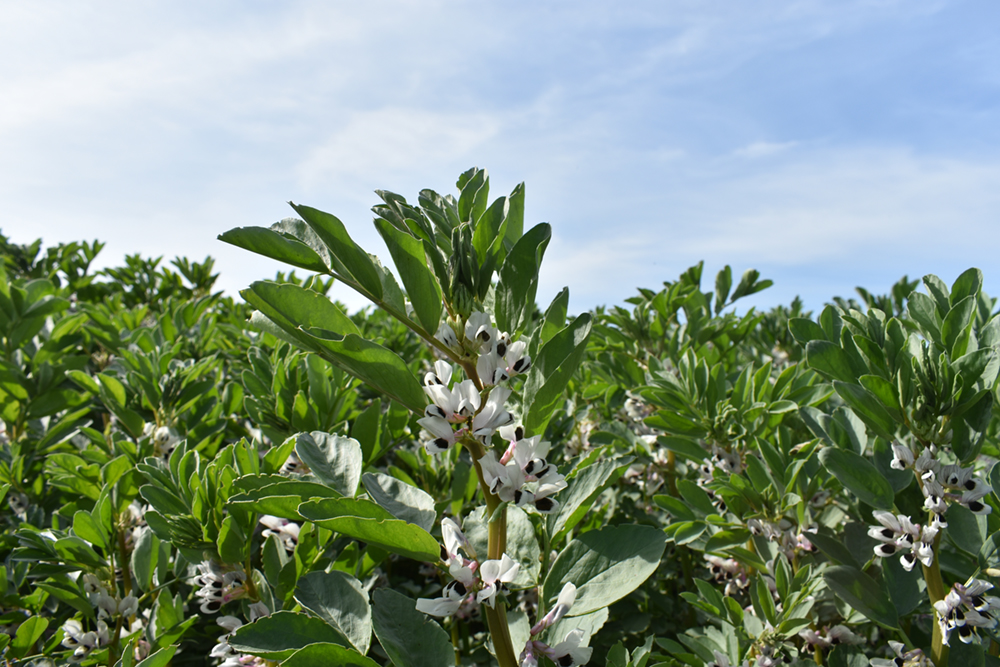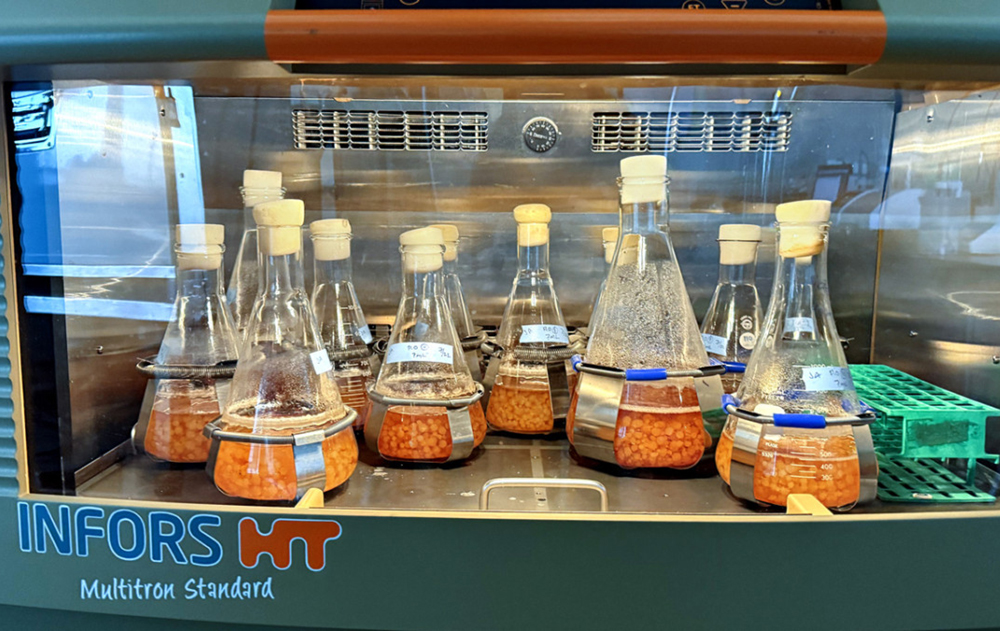
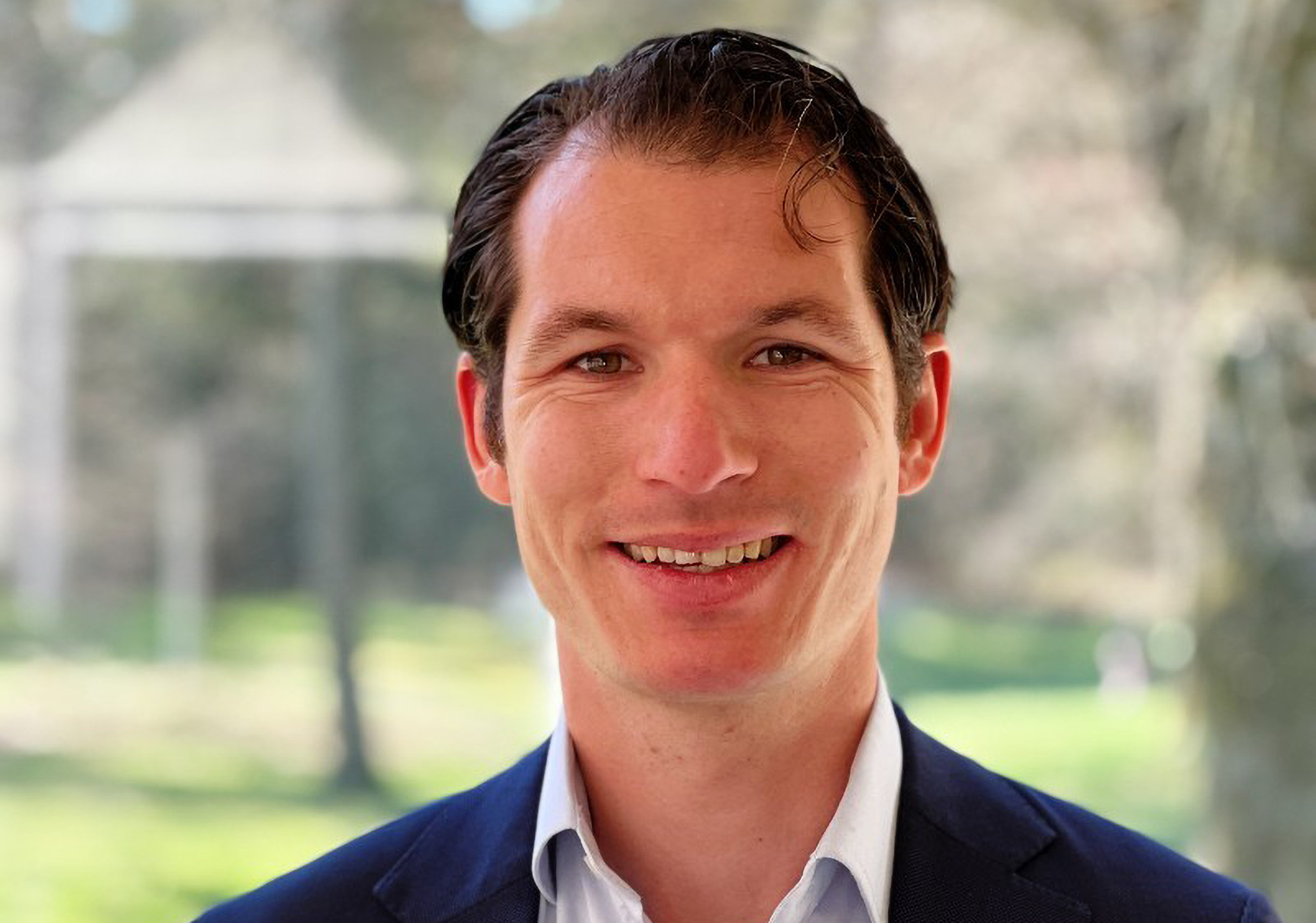
FPP Amsterdam 2025 Speaker Interview: Small but mighty – how Cosun is using corporate venturing to build a fourth growth pillar by 2030
Roderik Bronkhorst, Head of Corporate Venturing at Cosun, on why a 125-year-old cooperative is reinventing itself as one of Europe’s most agile investors in food tech – and what that means for the future of novel proteins, fermentation, and side-stream valorization
When you walk through Cosun’s headquarters in Breda, in the heart of the Dutch province of North Brabant, it doesn’t feel like the kind of place plotting a quiet revolution. There are no neon-lit labs or start-up slogans on the walls – just the steady hum of an agricultural cooperative that has been turning Dutch crops into value for farmers for more than a century. Yet beneath that calm surface, something fundamental is shifting.
“We’ve been around for over 125 years,” says Roderik Bronkhorst, Head of Corporate Venturing at Cosun. “We started by extracting sugar from sugar beets. Now we’re also turning crops into proteins, fibers, sweeteners, and texturizers. The mission hasn’t changed – it’s still about creating value for our members – but the tools absolutely have.”
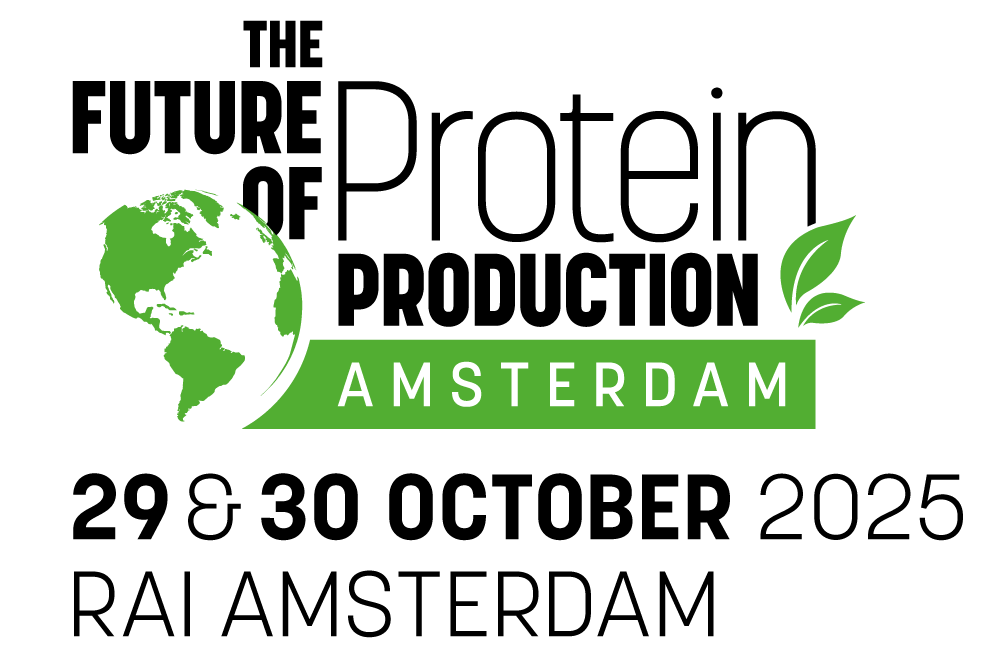
That transformation sits at the core of 'Unlock 30', Cosun’s strategic framework for 2030. The plan sets an ambitious target: build a fourth major earnings pillar, powered by plant-based ingredients, to stand alongside the cooperative’s traditional sugar, potato and co-products businesses.
“Our CEO calls it €400 million in sustainable EBIT,” Bronkhorst reveals. “We’ve reached that level before, but only when sugar prices were through the roof. The challenge now is to get there on a normal sugar price – to make those returns reliable and repeatable. That’s how we future-proof the cooperative.”
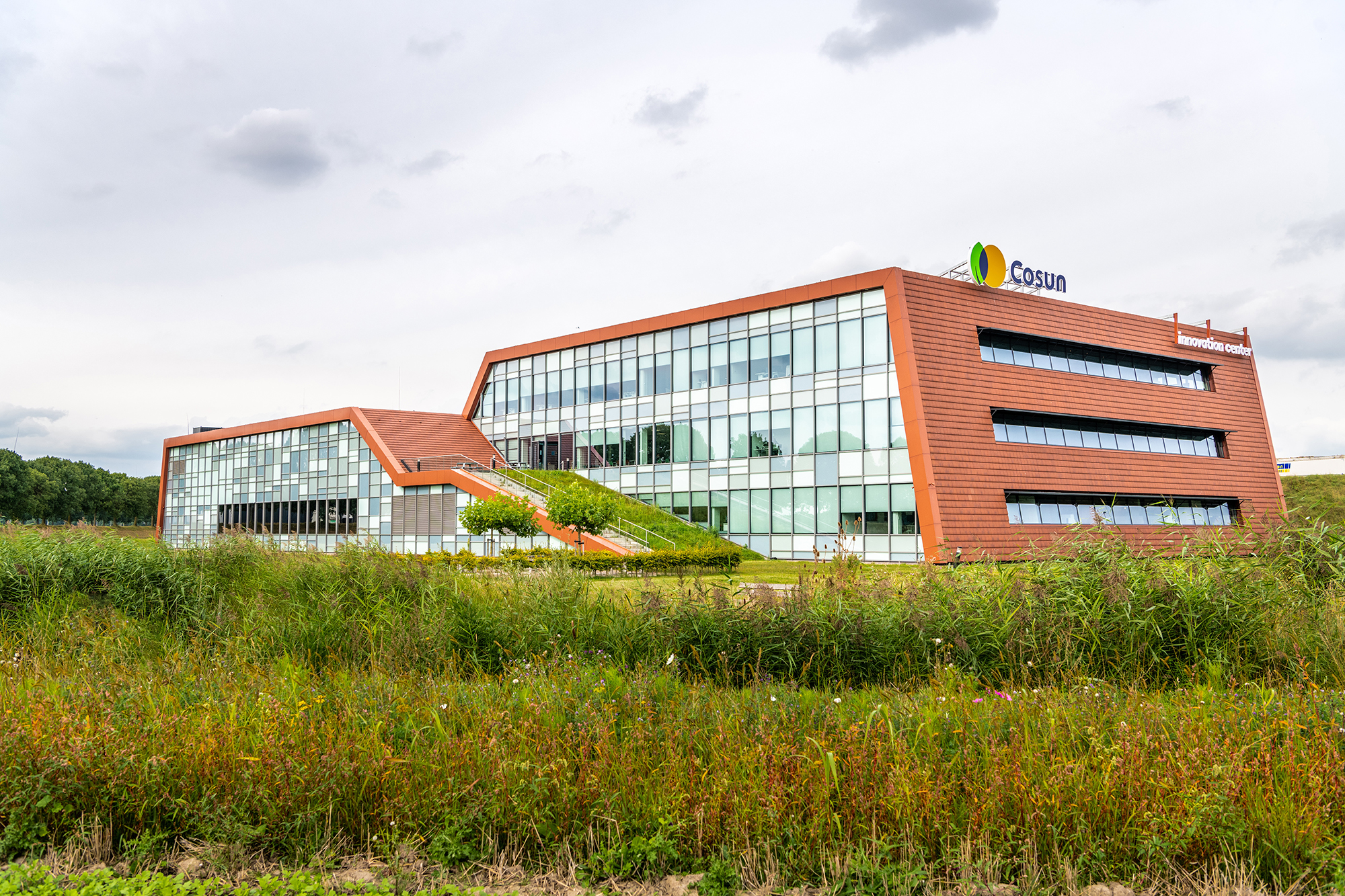
A new era of corporate venturing
Bronkhorst isn’t a typical agrifood executive. Before joining Cosun, he spent years in investment banking at Rabobank, advising cooperatives around the world. That finance background shapes how he reads today’s market.
“I actually think now is the best time in years to invest in food tech,” he says. “The boom of 2019-2020 brought a lot of capital – and a lot of unrealistic expectations. Since then, valuations have come down, the tourists have left, and the companies that survived are the ones with real technology and good management.
“It’s a healthy correction. We’re back to talking about value creation rather than hype curves.”
“My board isn’t asking me for a 10x return. We’re not a VC fund. We invest for strategic return – to commercialize new ingredients and unlock more value from our crops”
Cosun Ventures, the cooperative’s corporate venturing arm, typically invests €2-5 million at Series A or later, focusing on startups in alternative proteins, functional fibers, sweetener alternatives, and other advanced ingredient technologies. But the goal isn’t to chase venture-style multiples. “My board isn’t asking me for a 10x return,” Bronkhorst says. “We’re not a VC fund. We invest for strategic return – to commercialize new ingredients and unlock more value from our crops.”
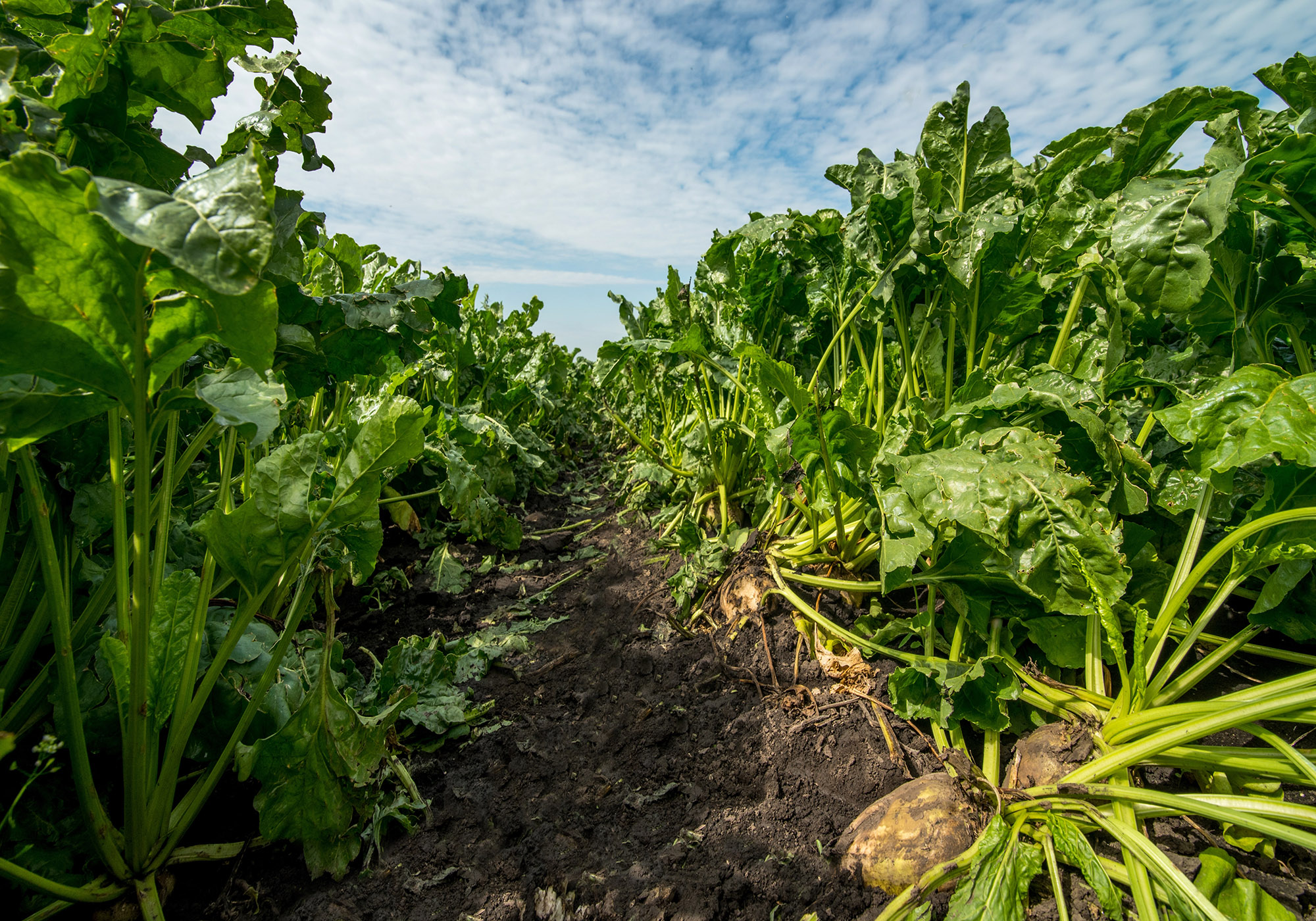
From sugar to protein
Few examples capture that philosophy better than fermentation. “Right now, we sell sugar for a few hundred euros a ton,” he says. “But if you use that same sugar as feedstock for fermentation, suddenly it’s worth multiples of that. That’s what we mean by valorizing crops – using technology to unlock more value from what we already grow.”
Cosun has already invested in a mycoprotein company that can efficiently scale fermentation, effectively turning sugar into a complete, sustainable protein source. It’s a striking illustration of how an old-world cooperative can repurpose its assets – land, feedstock, and process expertise – for a new kind of food economy.
“Fermentation isn’t new technology,” Bronkhorst says. “What’s new is how we apply it – connecting it to the crops and infrastructure we already understand.”
Another growth vector for Cosun is side-stream valorization. The cooperative's agricultural and processing footprint produces vast by-products, most of which still end up in animal feed. “As a cooperative, we’re sitting on tons of material that still has nutritional and functional potential,” Bronkhorst says. “If we can turn even part of that into human food or pet-food ingredients, the value creation is enormous.”
The challenge, he admits, is technological. “These are complex matrices – lots of variation, lots of processing constraints. But innovation is coming fast. Once the economics make sense, side-stream valorization could become one of the most impactful areas in food tech.” Beyond the business case, he argues, turning by-products into value eases the squeeze on land and resources, cutting waste and boosting sustainability.

How Cosun picks its partnerships
Cosun’s venturing model avoids rigid formulas. Instead, it starts with the problem and then chooses the right instrument: an R&D partnership, a minority investment, or access to the cooperative’s innovation and scale-up facility located at the Cosun Innovation Center in Dinteloord.
“If a startup’s technology fills a gap in our portfolio and we can co-commercialize an ingredient, equity makes sense,” says Bronkhorst. “If their technology is relevant but broader than our needs, a partnership might be better. And sometimes, offering lab space or feedstock can be the highest-value contribution. The form follows the function.”
That flexibility – rare in large corporates – is what he calls Cosun’s “small-but-mighty” advantage. The venturing team can move fast because the governance is lean. “Every Friday we have a standing board meeting,” he says. “If I want to pitch an investment, I just put my name on the list. We can approve within a week. For a cooperative, that’s lightning speed.” In practice, some processes like validation and coordination naturally take a bit longer, but the overall pace remains remarkably fast for an organization of its kind.
The best illustration of this approach is Revyve, a Dutch company transforming upcycled yeast biomass – a by-product from brewing – into functional ingredients such as proteins and fibers for food applications.
“When we first invested, Revyve was still early in its journey,” Bronkhorst recalls. “We gave them access to Inicio, our scale up facility. They could use our operators and our equipment, so instead of spending millions building their own pilot line, they were producing relatively quickly.”
The collaboration let Revyve hit the market faster and at a fraction of the cost. Two years later, it had secured a Series B and taken over the facility lease itself. “That’s the ideal outcome,” he says. “We help them reach proof points quickly, then we step back. They produce independently, and we remain a partner on commercialization.”
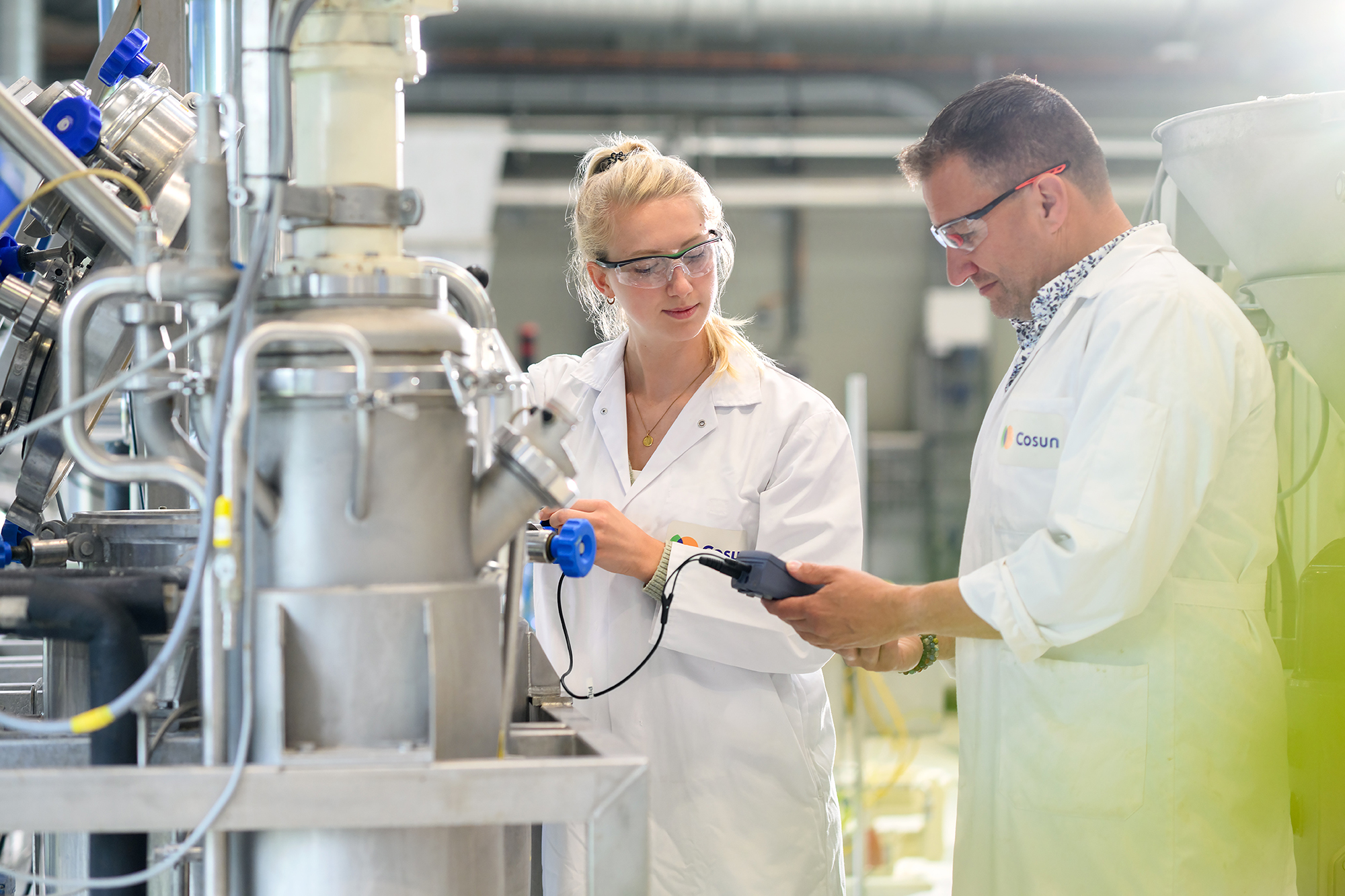
Making collaborations actually work
Bronkhorst has seen plenty of corporate-startup marriages fail – usually for the same reason. “Misalignment kills collaboration,” he says flatly. “You can’t force it from the top down. If the business unit isn’t genuinely interested, it won’t work.”
To prevent that, Cosun uses a triangle model for every deal: investment, R&D, and the business line must all be onboard. “If one of those three isn’t convinced, we don’t move forward,” he explains. “That’s how we make sure everyone has skin in the game.”
He also separates the investment role from operational collaboration. “I can open the door,” he says, “but the business manages the relationship. And there’s no free lunch – every project has to make sense commercially.”
Bronkhorst will expand on these ideas later this month at The Future of Protein Production Amsterdam (RAI Amsterdam, 29-30 October 2025), where he joins a panel on corporate venturing and strategic investment in alternative proteins. He says the timing couldn’t be better. “We’re at a point where food tech is maturing – not slowing down, but becoming smarter. That’s exactly the conversation we need to have.”
This isn’t about chasing trends. It’s about resilience. We’ve been around 125 years. Everything we do is about making sure we’re still here in another 125
Bronkhorst is also frank about the sector’s boom-and-bust cycle. “Some valuations in 2020 were insane,” he says. “People were applying SaaS multiples to food ingredients. That’s just not how this industry works.”
Now, he believes, investors are asking the right questions again. “Can it be cheaper than the incumbent? If not, is it significantly better in functionality? If the answer’s no to both, it’s not ready. That’s the reality check the market needed.”
That pragmatism is guiding Cosun’s next wave of exploration: alternative sweeteners that can rival sugar on both price and performance, and prebiotic fibers, which he believes are poised to follow protein’s trajectory as the next consumer wellness frontier.
The power of cooperation
Bronkhorst doesn’t see corporate investors replacing venture capital. Instead, he sees a triangle of cooperation – financial investors for discipline and scale, corporates for industry know-how, and governments for mission-driven capital.
“Startups bring speed and creativity. Corporates like us bring feedstock, regulatory expertise, and market access. And public funds – the EIB, the EIC, Dutch innovation programs – make the ecosystem stronger,” he says. “All three are needed to build a sustainable food future.”
He pauses before adding, “This isn’t about chasing trends. It’s about resilience. We’ve been around 125 years. Everything we do is about making sure we’re still here in another 125.”
Roderik Bronkhorst is one of more than 100 speakers taking to the stage at The Future of Protein Production Amsterdam on 29/30 October 2025. To join him and more than 1,000 other attendees, book your conference ticket today and use the code, 'PPTI10', for an extra 10% discount on the current rate. Click here
If you have any questions or would like to get in touch with us, please email info@futureofproteinproduction.com

.png)



